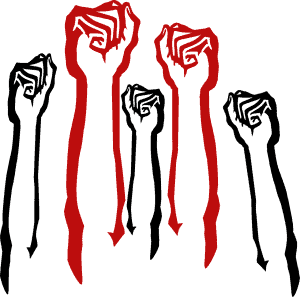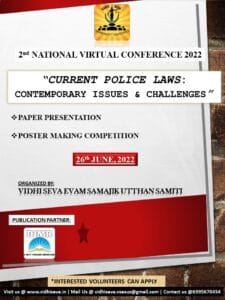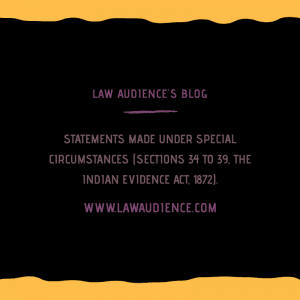AUTHORED BY: MR. PRANAV TOMAR, B.A.LL.B, 1ST YEAR STUDENT AT RAJIV GANDHI NATIONAL UNIVERSITY OF LAW & RESEARCH WRITER AT LAW AUDIENCE:
INTRODUCTION:
Union of India after getting decolonized from the English opted for Democratic form of government through which local population can elect their representatives. Constitution makers chose to form a republican state where the head of the head will be elected. This measure gave no alternative but to make the provisions of President to be the nominal head of the country. According to the Constitution there “shall be a president of India”[1], who would assume the office for the tenure of 5 years and is eligible for re-election.[2] He may submit his resignation to Vice President of India.[3] A candidate standing for the position of president must be a citizen of India, should be at least 35 years of age, and should be qualified for an election as a member of any of the houses.[4] He should not hold any office of profit and if he’s a member of any of the houses of parliament then he must vacant his seat in that house.[5] Office of President being the superior most post makes him the leader of the democracy.
To mention few of his powers, he appoints officers, gives his assent to the bills, and is the supreme commander of all the Defence forces (i.e. Army, Navy, and Air Force).[6] President has an utmost obligation to “preserve, protect, and defend” the sanctity of the constitution as suggested in the oath[7]. The oath lays down certain responsibilities as well as powers which President tend to exercise. These can be:-
- President has the power to impose emergency in the eleventh hour if he feels that democratic structure is been harmed. Emergency is of three types namely, National Emergency,[8] State Emergency,[9] and Financial Emergency.[10] President can impose these emergency actions with regard to the Centre if:
- There is failure or breakdown of constitutional machinery
- There is grave threat to the sovereignty of the country
- The government hasn’t successfully managed the internal disputes and it has caused unrest to the population.
In such a situation the President and the Governors nominated by him becomes a network, keeping the country together and meeting the situation as temporary custodians of the Constitution
- The President could and should invoke his powers and uphold his oath of office, if necessary by exercising his powers as the Supreme Commander of the Defence Forces of the Union[11]
- To obtain the opinion of the Supreme Court on any question of law or fact, of such a nature and of such an import that he considers it expedient to do so[12].
- To appoint the Attorney-General to serve during his pleasure and give him such remunerations as he may determine so that, in conceivable circumstances, he might receive independent advice on constitutional matters[13].
These provisions establish the machinery available to ‘the President independently of the Ministry to prevent the Constitution from being twisted out of shape by political pressures or constitutional mishaps. The President takes an oath “faithfully” to execute the office of the President and to protect and defend the Constitution.
MANNER OF ELECTION OF PRESIDENT:
Constitution of India provides for indirect election for the post President. Why it is so? President, being the superior most post of the country is not elected by the people but by the elected members? In this context, the constitution makers put forwarded the argument that Indian democracy has parliamentary form of government which put emphasis on the ministerial character of the government that power actually resides in the hands of ministry and president is just the nominal head. Therefore, if there was an adult franchise and yet did not give any powers to him becomes anomalous. In addition, it was put forward that, the elected members are the voices of the people only and conducting a separate election for President will consume tremendous amount of time, energy and money.
The President shall be elected by the members of an electoral college consisting of—
- The elected members of both Houses of Parliament; and
- The elected members of the Legislative Assemblies of the States.[14]
IMPEACHMENT OF PRESIDENT:
According to article 71(1) of the Indian Constitution, Supreme Court shall make inquiries and decide regarding all doubts and disputes arising out of or in connection with the election of a president. Supreme Court possesses the power to remove the president for the malpractice or violating any of the essentials under Article 58. Subject to Article 71 (3), parliament has enforced certain provisions and rules stating that only disputes and not the doubts arising out of election of the President will be entertain by the Supreme Court. It has been further stated that, if the President has used some unconstitutional actions or has acquired citizenship of some other country during his tenure then he can be ask to vacant his office. The president may also be removed/ impeached from his office if he violates the provisions of Constitution of India.
The impeachment process can be initiated in either of the houses of the parliament. The proceedings start by applying charges against the President which must be signed by at least one-fourth of the total membership of the house. Then the notice of charge is sent to the President and 14 days later, it will be taken into consideration. A resolution to impeach has to be mandatorily passed by a two-third majority of the total number of the members of the impeachment initiating house. It is next sent to the other house. The other house takes probe into the charges. In the meanwhile, President has the right to onus to defend himself with the help of an authorized counsel. If the other house also passes the motion with the majority, then the process is considerate to be done and President will be asked to vacant his office from the date that resolution has been passed. In India, no president has faced such consequences till now.
CONCLUSION:
President being the head of the state has a duty to maintain the sanctity of the constitution from whatever problem arises in due course of time. He takes the oath to maintain the integrity and unity of the nation by respecting the well-being of the citizens. Under Article 361 of the Constitution, the President cannot be summoned (unless his voluntary effort to testify) in court in against the controversial deeds. As suggested in the case Rameshwar Prasad & Ors. v. Union of India & Anr.[15] Supreme Court held that President cannot be prosecuted and imprisoned during the tenure of his office. But he can be prosecuted after he/she steps down for the office against the charges which were placed during term of President. Till now, no President has faced any case regarding challenging the sanctity of the Constitution. The case will be decided by the Supreme Court only based on the facts well-founded by the Union government for the president’s role. Till now, many decisions taken by the President has been declared unconstitutional, mala fide, void or ultra vires by the Supreme Court.[16]
[1] Article 52, Constitution of India.
[2] Article 57, Constitution of India.
[3] Article 56, Constitution of India.
[4] Article 58, Constitution of India.
[5] Article 59, Constitution of India.
[6] Article 53 (2), Constitution of India.
[7] Article 60, Constitution of India.
[8] Article 352, Constitution of India.
[9] Article 356, Constitution of India.
[10] Article 360, Constitution of India.
[11] Article 53, Constitution of India.
[12] Article 143, Constitution of India.
[13] Article 76, Constitution of India.
[14] Article 54, Constitution of India.
[15] Rameshwar Prasad & Ors. v. Union of India & Anr. (2006) 2 SCC 1
[16]The Prevention of Insults to National Honour (Amendment) Act of 1971



